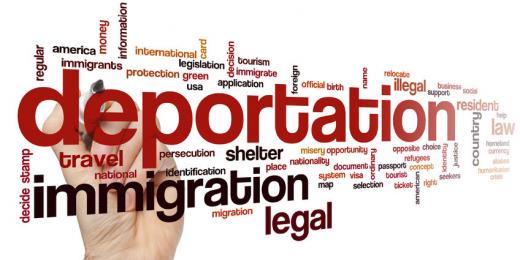In what most of the best
Immigration solicitors consider will probably be the final amendments to the
EEA Regulations, which came into force on 24th July 2018, it’s worth taking note of changes to exclusion orders and deportation orders, and also deportation and
permanent residence following the case of C424/16
Vomero.
Exclusion orders and deportation orders
The
EEA Regulations now contain provisions restricting the rights of those subject to exclusion orders or deportation orders under EU law. They do not have
- A right of admission;
- An initial right of residence;
- An extended right of residence; or
- A permanent right of residence
An application for a residence document or a family permit by anyone in this situation will be deemed invalid.
Although these restrictions apply to those subject to exclusion orders or deportation orders under EU law, and not the UK’s domestic rules. It’s important for
Immigration solicitors to understand that rights provided by EU law to
EEA nationals are distinct from those under UK domestic
Immigration law.
Following the case of C82-16
K.A. & others v Belgium the Court of Justice of the European Union made it clear that just because someone is subject to an entry ban under national law does not prevent them from applying for applying for a right to reside under EU law. It’s therefore important for any UK
Immigration lawyer to be aware of the distinctions between domestic
Immigration rules and those EU rules relating to free movement which can lead to conflicting outcomes.
The changes introduced by the latest
EEA Regulations include changes to clarify the position that where an
EEA national has resided in the UK for 10 years, they must have acquired
permanent residence before they benefit from enhanced protection against deportation. The changes to the Regulations come following the case of C424/16
Vomero.
Mr Vomero was an Italian national who had lived in the UK since March 1985, marrying his UK national wife in August 1985. He was the primary carer for the couple’s children, although he worked occasionally. His wife worked full time. Between 1987 and 1999 he received several convictions in Italy and in the UK. His marriage broke down in 1998 and he moved in with Mr M. In 2001 he killed Mr M and was convicted of manslaughter. Following his release from prison in 2006, the UK’s Secretary of State for the Home Department at the time decided that he should be deported under Reg 21 of the
EEA Regulations which implements Articles 27 and 28 of the Free movement directive. These articles allow EU member states to restrict freedom of movement on public policy, public security and public health grounds.
Mr Vomero appealed and spent some time in detention pending his deportation until December 2007. He received subsequent convictions again resulting in short periods of imprisonment. The Secretary of State for the Home Department argued that Mr Vomero’s prison sentence following the conviction for manslaughter meant that he had not required the necessary 10 years’
permanent residence in the UK to benefit from the protection against expulsion/deportation that Article 28 of the Directive afforded him.
The new Regulations now make this clear.
Dealing with Expulsion Orders and Deportation Orders
Anyone facing an expulsion order or deportation order whether an
EEA national or not will be understandably concerned about their future in the UK. This is particularly the case for anyone with
family life in the UK, so it’s vital to discuss your situation with the best
Immigration lawyers in London you can find. OTS Solicitors regularly advise clients facing deportation and can offer accurate and practical advice to help you challenge the deportation order and allow you to remain in the UK. You may also need to consult an
Immigration lawyer if you have been detained in connection with a deportation order or expulsion order.
To book an appointment to discuss any aspect of your Immigration status with our Legal 500 recommended solicitors, call 0203 959 9123. We cover all aspects of Immigration law, including deportation and expulsion orders and regularly advise EEA nationals, and deal with applications for Immigration bail.

